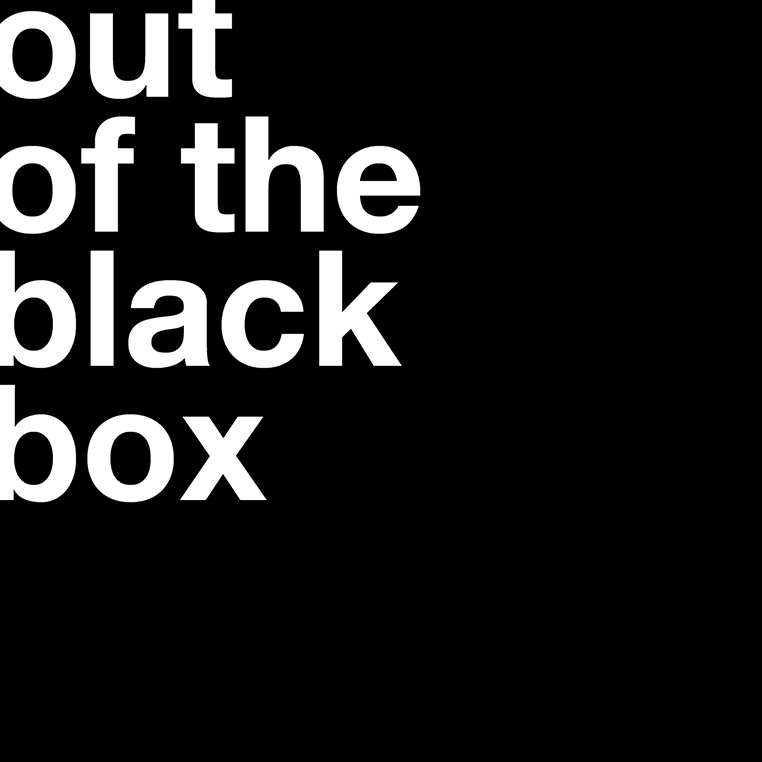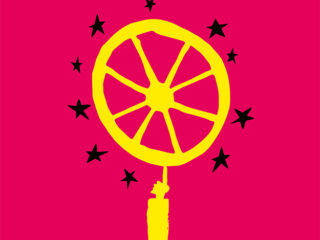
“Theatre is here to say and do the impossible.”
(Roberto Ciulli : Artistic Director)
“How to communicate with people who are losing the interest and ability to communicate? Because of social media, because of social despair. So much of Art is communication, especially theatre.”
We’re sitting in the window of an Italian restaurant, deserted before lunch, hiding from the Berlin snow falling all around outside. That slushy sort of snow that’s just not going to stick, but is beautiful to watch. Me and Sven Schlötcke from Theater an der Ruhr in Mülheim. Talking about international perspectives in German theatre.
Sven used to work round these parts. Back when these parts were part of the DDR. Where there were only two places for anything resembling free debate – the church and the theatre. Teaching at the Ernst Busch drama school, he considered the key task of theatre in the face of an oppressive regime, was to ensure that people could still communicate, still think and develop ideas. “The role of Art in such controlled societies where there is no free press, etc is to offer an ‘undercover’ communication” he explains, “all our shows feature symbolism and representation over words. And censors only focus on fixed rules. It’s like in Iran – men and women are forbidden to touch, but how much more does it say if onstage, they don’t touch by only one centimetre…”
Now, there are different pressures. “Our world is changing,” continues Sven, “this Trumpismus, the effects of technology. Now our dictatorship is self-inflicted. Everything becomes superficial in the sheer volume of messages. They’re too short for real meaning and there’s too little time for longer messages. So we think less deeply. Our task is to open up people’s awareness – they need to perceive, not to just consume.”
And so Sven tells me about what drew him to the Theater an der Ruhr, what makes it different from other German theatres. “Back in the early ‘80s, our Artistic Director, Roberto Ciulli, had a vision,” he explains, “A vision for a theatre that would develop intercultural understanding, exploring new philosophies and attitudes from other cultures, taking work across international borders and bringing work back to be seen in Germany. Bringing new ideas and viewpoints, uninfluenced by our western media. His idea was that theatre is about a journey, to travel into new cultures, to be interested in the things you don’t know. Thirty-five years ago. No-one else was doing this in Germany then. To begin with he headed east, to Turkey. And behind the Iron Curtain to Poland and what was then, Yugoslavia. Then came his Silk Road project, connecting with countries along the ancient trading routes. It’s amazing to think that Ciulli negotiated directly with countries like Iran at a time when governmental relations were so strained. A small theatre and a country! And the understanding that flowed from this was wonderful – transcending language. The language of theatre is universal. The Art itself is the opportunity to communicate. And this travelling insight brought a journey through aesthetic thinking too.”

This company really does get everywhere – occasionally, even the UK! This Autumn saw a short run of Ciulli’s two-hander version of Peer Gynt at London’s Arcola Theatre. Now they’re not travelling quite so much and have four main strands driving their intercultural activity. Each of these strands continues to bring theatre into Germany from countries not usually associated with international theatre exchange in Europe, not least because of wars or diplomatic upheavals at government level. “Firstly, there’s the Theaterlandschaft (Theatre Landscape) – an annual festival connecting artists from a wider range,” Sven says. “Last year the focus was on Mittelmeer (the Mediterranean). We brought in a few European companies sure, but it was mostly focussed on the Arabic-speaking coast so Tunis, Algeria, Lebanon. Then there’s a year-round festival, Klanglandschaft (Soundscapes), this year focusing on Armenian and Kurdish music and of course, our ongoing partnership and focus on Turkey and Istanbul. And we support others too – in 2017, we founded a resident Syrian/Arabic company, Collective Ma’louba but we’ve also been working with young refugees for the last 5 years, well before the ‘Refugee Summer’. And we used to have a Roma company – they eventually got their own funding and became independent.”
Ciulli also pushed boundaries within the company. “He developed our ‘complete ensemble’ structure,” explains Sven. “He wanted a continuity that wasn’t so much about the building but all about the people working here, a collective intelligence. Perhaps it works because with 45 staff including the artistic ensemble, we’re quite small, but there’s no hierarchy below the artistic direction, no formal meetings, mostly the staff organise themselves. It’s about trying as far as possible to involve everyone in the artistic process. It enables several often very different perspectives to play a role in forming the ethos and activities of the company. And with this comes a deeper connection between us all, better decision-making, problem solving and future planning. It’s a small experimental society and most importantly, it keeps art at the heart of everything we do. Part of the problem with the Staatstheaters is that the power of the structures is often bigger than the power of the art… Art can’t be measured, it shouldn’t be dominated by this culture of economics,” Sven goes on, quoting the German philosopher and social critic, Theodor Adorno, ‘Happiness is obsolete, uneconomic.”

A few weeks later I head over to Mulheim to see a show, Konig Ubu # Am Konigsweg, and have a look round. Ciulli at 83 isn’t showing any signs of slowing down any time soon. He’s about to open Quartet by Heiner Müller, before Otello and the third piece in his Clown Trilogy. “Theatre is here to say and do the impossible” he smiles, “look at our logo.” An Autobahn sign with an impossible left turn. Ciulli’s lifework has been described as the search for a “social utopia unbounded by geographic, linguistic, religious or political limits and creating new dimensions through the diversity of each individual’s cultural heritage.” Unconcerned about national protocols, he describes himself as a ‘jester between the factions,’ who believes in allowing the work to speak. “We played Danton’s Death in Iran with lines like: ‘That’s the dictatorship. You want bread and they throw heads at you.’ That of course makes a huge impression on the audience…”

The show, directed by Philip Preuss, is a mash-up of surrealist Alfred Jarry’s attack on classical theatre, King Ubu and a contemporary piece from Elfriede Jelinek exploring the rise of Trump-style values and populism laced through with concerns about social media, Am Konigsweg.
A glittering gold stage. Four men in bathrobes stand at four fireplaces and burn papers in momentary puffs of brilliant fire. Each is anointed ‘king’ whatever that may mean. Each must deal with the egg, a test that none of them can solve. A woman emerges from a fifth fireplace at the back of the stage and moves about ghost-like. A seer, the playwright herself as spectator, “a beautiful confused Melania” says one review. Perplexed, seeking truth, she tries to understand, to follow all the contradictions and inconsistencies in the mayhem. To find a value in the blatant, pointless consumerism. She tips out a box of ashes and searches through the black mass on her knees. She restlessly tries to clean the stage with her long white sleeves. Of the ashes? Or of the gold? Periodically she draws a curtain. Across the madness? Her own fear? And the men end up twitter-ing sitting in a huge bird’s nest. All intercut with King Ubu, a gross representation of a painted belly belching and consuming in equal measure – a spilling mess, a gross ambition, greed gone mad – projected huge onto a gauze curtain. The whole is a complex collage, but one question seems fairly clear. What on earth are we all doing?

Photo credits
Homepage : Theater an der Ruhr Logo.
Main photo : Travels. Publicity material. Original photo © Gralf-Edzard Habben
(Photos courtesy of Theater an der Ruhr)
9 December 2017:
Prenzlauerberg, Berlin
19 January 2018:
Theater an der Ruhr, Mülheim






Leave a Reply
You must be logged in to post a comment.